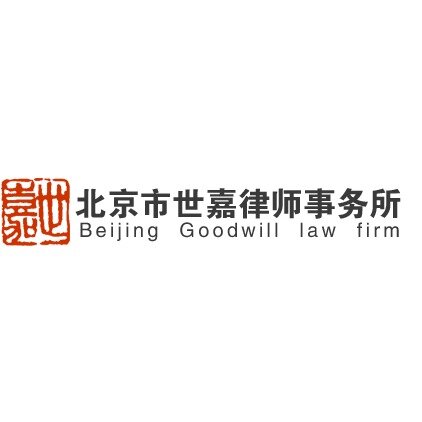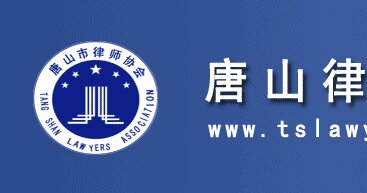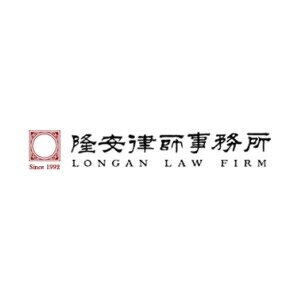Best Employer Lawyers in China
Share your needs with us, get contacted by law firms.
Free. Takes 2 min.
Or refine your search by selecting a city:
List of the best lawyers in China
About Employer Law in China
China's employer law, primarily governed by the Labor Law of the People's Republic of China and the Labor Contract Law, establishes the legal framework for employment relationships. These laws set out the rights and obligations of employers and employees, cover conditions on contracts, layoffs, working hours, wages, labor disputes, and occupational health and safety.
The Chinese labor market is also influenced by local regulations and the collective contracts of various industries. Therefore, the labor laws tend to be complex and intricate, requiring employers to stay informed and compliant with both national and regional regulations.
Why You May Need a Lawyer
Legal assistance might be necessary in various situations involving employer law in China, including:
- Drafting Employment Contracts: To ensure all necessary clauses comply with national and local laws.
- Dispute Resolution: Legal advice can be crucial in handling labor disputes and grievance procedures.
- Compliance with Labor Regulations: Understanding the latest labor laws and policies can help avoid legal pitfalls.
- Terminating Employment Contracts: Proper legal consultation is advisable to minimize risks during layoffs or contract terminations.
- Handling Employee Benefits: Legal insights are needed to manage employee benefits in alignment with statutory requirements.
Local Laws Overview
Key aspects of local laws relevant to employer practices in China include:
- Employment Contracts: Required for all employees, must be in writing, and outline terms such as job description, pay, and duration.
- Minimum Wage: Varies regionally, employers must comply with local minimum wage standards.
- Working Hours: Standard work hours are set at 8 hours a day and 44 hours a week; any overtime requires clear policy adherence.
- Social Insurance and Benefits: Employers are required to provide insurance covering pensions, medical, unemployment, work injuries, and maternity benefits.
- Labor Dispute Resolution: Mechanisms include arbitration, mediation, and litigation through China’s labor dispute arbitration committees and courts.
Frequently Asked Questions
What are the primary laws governing employment in China?
The Labor Law and the Labor Contract Law are the main legislative frameworks, supplemented by various administrative regulations and regional rules.
Is a written employment contract mandatory?
Yes, it is mandatory to have a written employment contract with all employees, specifying essential terms of the employment.
How does overtime work in China?
Overtime must be compensated as per labor laws, generally set at 150% of normal wages on workdays, 200% on rest days, and 300% on statutory holidays.
What are the conditions for contract termination?
Contracts can be terminated under mutual agreement, for cause, or redundancy; however, employers must follow stipulated procedures to avoid unlawful dismissal claims.
How often should wages be paid?
Wages must be paid at least once a month, with consistency in the method and timeline of payment.
Do labor contracts have to be renewed annually?
Not necessarily; the duration depends on the agreement between the employer and the employee but must be specified in the contract.
What are the legal requirements for hiring foreign employees?
Foreign employees require appropriate work permits and visas; employers must ensure compliance with immigration and employment laws.
What role do trade unions play in China?
Trade unions protect workers’ rights, engage in collective bargaining, oversee the implementation of labor laws, and mediate disputes.
Is there a probation period for new employees?
Yes, a probation period can be included in employment contracts, lasting a maximum of six months depending on the term of the contract.
What remedies are available for labor disputes?
Dispute resolution can involve mediation, arbitration, or litigation. It’s often advised to attempt mediation before pursuing litigation for faster resolution.
Additional Resources
Consider consulting the following resources for further information:
- Local labor bureaus and their official websites for specific regional regulations.
- The Ministry of Human Resources and Social Security of the People's Republic of China provides guidance and updates on labor laws.
- Chinese law firms specializing in labor law can offer professional advice and represent clients in legal proceedings.
Next Steps
If you need legal assistance, it’s advisable to:
- Consult a law firm that specializes in labor law in China to understand your rights and obligations.
- Prepare all relevant documents, including employment contracts, records of communications, and any evidence related to disputes.
- Consider taking preliminary advice from labor dispute arbitration committees if applicable.
- Engage with professional legal services to navigate complex cases or when facing potential litigation.
Understanding the intricacies of employer law in China is crucial for compliance and successful business operations in the country. By seeking timely legal advice and staying updated on laws and regulations, employers can effectively manage their obligations and protect their business interests.
Lawzana helps you find the best lawyers and law firms in China through a curated and pre-screened list of qualified legal professionals. Our platform offers rankings and detailed profiles of attorneys and law firms, allowing you to compare based on practice areas, including Employer, experience, and client feedback.
Each profile includes a description of the firm's areas of practice, client reviews, team members and partners, year of establishment, spoken languages, office locations, contact information, social media presence, and any published articles or resources. Most firms on our platform speak English and are experienced in both local and international legal matters.
Get a quote from top-rated law firms in China — quickly, securely, and without unnecessary hassle.
Disclaimer:
The information provided on this page is for general informational purposes only and does not constitute legal advice. While we strive to ensure the accuracy and relevance of the content, legal information may change over time, and interpretations of the law can vary. You should always consult with a qualified legal professional for advice specific to your situation.
We disclaim all liability for actions taken or not taken based on the content of this page. If you believe any information is incorrect or outdated, please contact us, and we will review and update it where appropriate.
Browse employer law firms by city in China
Refine your search by selecting a city.















